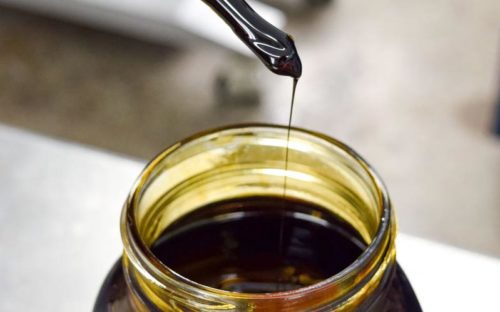THC-O-Acetate: Everything You Need To Know | Voluntate Shop
Within the cannabis community, a new chemical has been making itself known. THCO Acetate, or simply THC-O, is the name of such a chemical. The fact that this chemical is substantially more potent than regular delta-9 THC is just one of the numerous factors that have sparked so much interest in it. However, there are still a lot of unanswered concerns, such as how and where to get THCO Acetate Distillate. Or is it federally lawful like CBD, delta 8, and delta 10? Is it subject to the same legal limits as delta 9? These and other inquiries will all be addressed in this essay. Here is all the information you require regarding THC-O-Acetate.
What Is Acetate Of THC?
A synthetic cannabinoid is THC-O. It shares a very similar molecular structure with other cannabinoids and exhibits similar traits and abilities. THCO Acetate does not exist naturally in nature, which is the distinction. It can only be produced by artificial means.
Making THCO Acetate Distillate is a difficult and extremely dangerous technique. Corrosive chemicals that can eat through metal are used in this process. Additionally, it entails a number of quite intricate procedures in which acetic anhydride is used to acetylate THC. Before the THC-O-Acetate is safe to eat, the anhydride must be properly removed using distillation once the acetylation is finished. Because of this, it is best to do the process in a laboratory setting under the supervision of trained personnel.
The main cause of the drug's scarcity is the complexity of the THCO Acetate cultivation method. Only those with ample resources and access to state-of-the-art tools are willing to take it on. Prior to the legalisation of cannabis, it would have been extremely difficult to find the personnel and facilities needed to produce THCO Acetate Distillate effectively.
Potency Of THC-O-Acetate
We stated that regular delta 9 THC is less powerful than THC-O Acetate. Compared to 9, it is actually 300% more psychoactive. That is quite important. Remember that 9 THC is already fairly powerful in terms of psychoactive substances. Imagine what a delectable loaded with this substance could do if one edible is sufficient to keep you glued to the couch for a few hours. But what actually gives THCO Acetate its strength?
The acetylation procedure is to blame for the issues. The reaction that takes place when a molecule is exposed to an acetyl group is known as acetylation called THCO Acetate Distillate. One oxygen atom, two carbon atoms, three hydrogen atoms, and an acetyl group make up a simple tiny molecule. A special reaction takes place when an acetyl group is introduced to a molecule, such as THC, and the molecule becomes acetylated as a result. In other words, THC-O-Acetate is just THC that has been acetylated.
Acetylated molecules are unique because they can pass across the blood-brain barrier more readily. Your brain's blood-brain barrier acts as a security guard or bouncer. THCO Acetate limits the specific molecules that can enter your neurons. The blood-brain barrier would therefore ordinarily activate and limit the absorption of THCO Acetate Distillate molecules if there were an excess of them floating around in your neurological system, much like when a bouncer stops letting people into a club to keep it from getting too crowded. However, acetylated molecules can pass through the barrier with ease. As a result, THC-O-Acetate rapidly floods your neurons with a large number of THC molecules, producing a stronger euphoric impact.
The interaction between heroin and morphine is another typical illustration of acetylation. The acetylated form of morphine is heroin. This dichotomy demonstrates the importance of acetylation.THCO Acetate is the distinction between heroin, an addictive and hazardous illegal narcotic, and morphine, a medication used to manage pain in a medical environment. This may raise the question of whether THCO Acetate Distillate is harmful. No, is the response. It is extremely difficult to overdose on THC; even with THC-O, it would require an extremely large dose to be lethal. Although acetylation may boost a molecule's potency, its inherent characteristics are unaffected. Even morphine can be lethal if administered improperly.
THC-O-Acetate's Potential Future
THC-O is not currently included on the federal government's list of prohibited substances. However, this does not automatically make it legal. THCO Acetate is regarded as a THC analogue, making it equivalent to delta 9 in terms of legal classification. Although cannabis is regarded as being illegal on a federal level, states where marijuana is lawful permit the sale and production of it.
Where to Buy: As more information on the chemical has been available, some dispensaries have started offering THCO Acetate Distillate products. THC-future, O's however, is still unknown. Customers are still highly dubious, and with good reason. Cannabis has a history of being seen as a natural substance. Some societies view marijuana as a form of plant medicine. Smoking tobacco helps Rastafarians become closer to both God and nature. A cannabis product THC-O-Acetate made synthetically in a lab kind of negates the whole idea.

Comments
Post a Comment